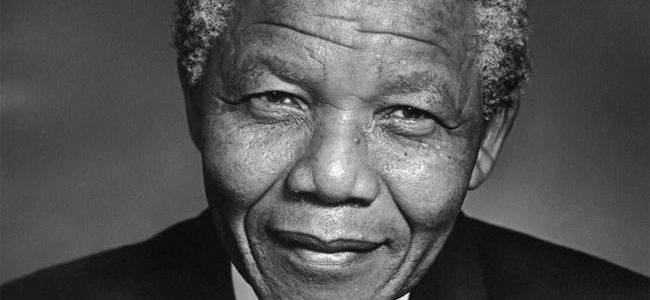Nelson Mandela
A South African anti-apartheid revolutionary, statesman and philanthropist who served as the first president of South Africa

A brief history of Nelson Mandela
Known and loved around the world for his commitment to peace,
negotiation and reconciliation, Nelson Rolihlahla Mandela was South
Africa's first democratically elected president (1994-1999). Mandela
was an anti-apartheid revolutionary and political leader, as well as
a philanthropist with an abiding love for children. Mandela was born
into the Xhosa royal family on 18 July 1918 and died on 5 December
2013. Before his death in 2013 at the age of 95, the former
President of South Africa, led an extraordinary life. From 25 years
of imprisonment, to becoming the first democratically elected
President of his nation and jointly winning the Nobel Peace
Prize.
In his 1994 autobiography, Long Walk to Freedom Mandela describes
how education intertwined the different events in his life. He
discusses the Western-style English-language education he received
at mission schools as a boy, and how the feelings of inadequacy it
fostered among his people resulted in anger and even social
uprising: “it was not lack of ability that limited my people, but
lack of opportunity… We were taught that the …best men were
Englishmen.”
Throughout his long life and even his imprisonment, Mandela made a
point to keep educating himself – seeing learning as an escape from
his confines. Even just days before the trial at which he could have
been served a death sentence, he was writing papers for his law
degree.
He even inspired his fellow prisoners to do the same: “At night, our
cell block seemed more like a study hall than a prison… Robben
Island was known as ‘the University’ […] because of what we learnt
from each other”.
Few achievements of Nelson Mandela
This is a comprehensive list of awards, honours and other
recognitions bestowed on Nelson Mandela. Mandela received more than
260 awards over 40 years, most notably the Nobel Peace Prize in
1993. From 1994 to 1999, Mandela was President of South Africa. He
was the first such African to be elected in fully representative
democratic polls.
Following his release from prison on 11 February 1990, his advocacy
of a policy of reconciliation and negotiation helped lead the
transition to multi-racial democracy in South Africa. Since the end
of apartheid, he was widely praised, even by former opponents.
In South Africa he is often known as Madiba, an aristocratic title
adopted by the elderly members of the royal clan that he belongs to.
This title has come to be synonymous with Nelson Mandela.
Here are some of many achievements he earned:
- 1973 – A nuclear particle discovered by scientists at the University of Leeds is named the "Mandela particle".
- Bruno Kreisky Award for merit in the field of human rights, chosen by a panel of international judges, Vienna, Austria
- The Third World Prize, awarded annually by the London-based Third World Foundation for Social and Economic Studies, awarded jointly to Nelson and Winnie Mandela
- Statue of Nelson Mandela erected in London by Greater London Council, unveiled by Oliver Tambo on 28 October
- "Mandela Day", a public holiday declared in Zimbabwe on 5 March